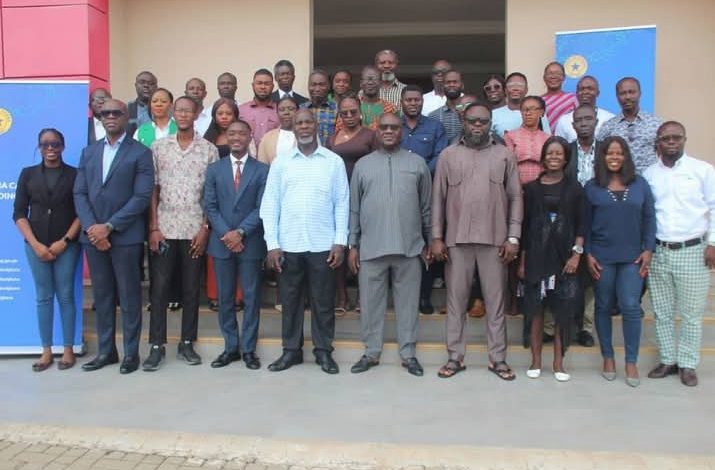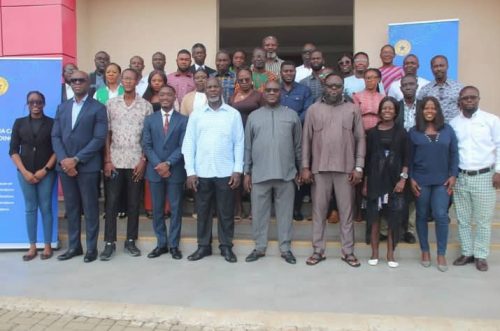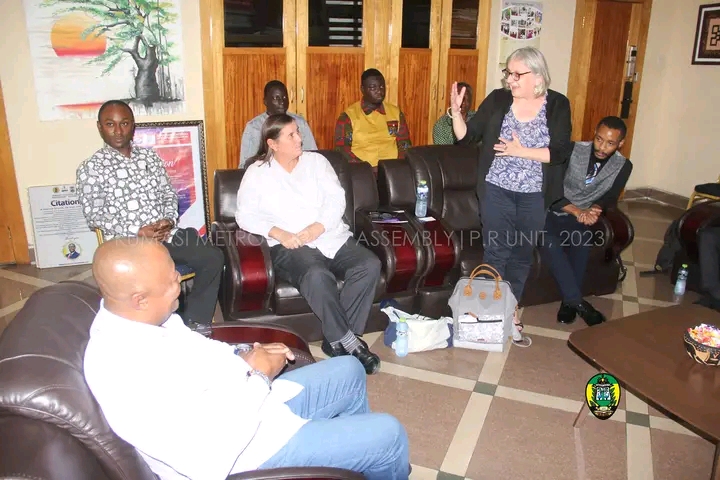BoG Trains Journalists in Eastern Region to Deepen Financial Reporting Accuracy and Combat Misinformation


In a determined effort to strengthen the quality of financial journalism in Ghana, the Bank of Ghana (BoG) has organized a three-day intensive training workshop for 25 selected journalists from the Eastern Region. The workshop, which took place in Koforidua, focused on equipping participants with the essential knowledge and tools to enhance their reporting on financial and economic issues.
The training forms part of BoG’s nationwide initiative to improve media understanding of economic principles and the central bank’s operations. So far, the Bank has extended this intervention to the Volta, Western, and Ashanti Regions, where 75 journalists have already benefited.
Addressing participants, the Director of Communications at the Bank of Ghana, Mr. Bernard Otabil, emphasized the critical role the media plays in shaping public opinion and policy discourse. He noted that misinformation and misinterpretation of economic data in the media are often linked to inadequate subject knowledge. Mr. Otabil therefore urged journalists to develop a sustained interest in financial matters and to pursue specialized training that would enable them to interpret economic issues accurately.
“Economic and financial reporting is technical and must be handled with care. When journalists are empowered with the right tools and understanding, the risk of misinforming the public is greatly reduced,” Mr. Otabil stated.
The workshop covered a wide range of key topics including the formulation and transmission of monetary policy, the causes and effects of inflation, exchange rate dynamics, principles of responsible borrowing, and the internal workings of the Central Bank. Facilitators from the Bank used practical examples and interactive sessions to demystify complex financial concepts and make them more relatable to the journalists.
In addition to the technical training, participants were given insight into BoG’s efforts to improve its communication and transparency. Mr. Otabil highlighted the Bank’s regular engagement with the public through the publication of Monetary Policy Committee (MPC) summaries and routine press briefings, often led by Governor Dr. Maxwell Opoku-Afari (Acting), which are designed to make the Central Bank’s policies clearer and more accessible.
Speaking on behalf of the Eastern Regional chapter of the Ghana Journalists Association (GJA), Chairman Maxwell Kudekor lauded the Bank of Ghana for taking proactive steps to build the capacity of journalists. He observed that financial journalism remains a critical yet underdeveloped area in Ghana’s media landscape and described the workshop as timely and impactful.
“Journalists must constantly evolve and remain competitive in an ever-changing information space. This training not only enhances our understanding of financial matters but also helps us to report more accurately and confidently,” Mr. Kudekor remarked.
Participants expressed appreciation for the opportunity and called for the continuation of such initiatives across all regions of the country. They acknowledged that the knowledge gained would significantly improve their work and ensure that they contribute meaningfully to public discourse on economic issues.
The Bank of Ghana’s media capacity-building program represents a strategic approach to fostering financial literacy, enhancing transparency, and ensuring that accurate and well-informed economic narratives reach the Ghanaian public. As the country continues to navigate complex financial challenges and global economic uncertainties, the role of trained journalists in bridging the gap between technical economic policies and the average citizen cannot be overemphasized.





